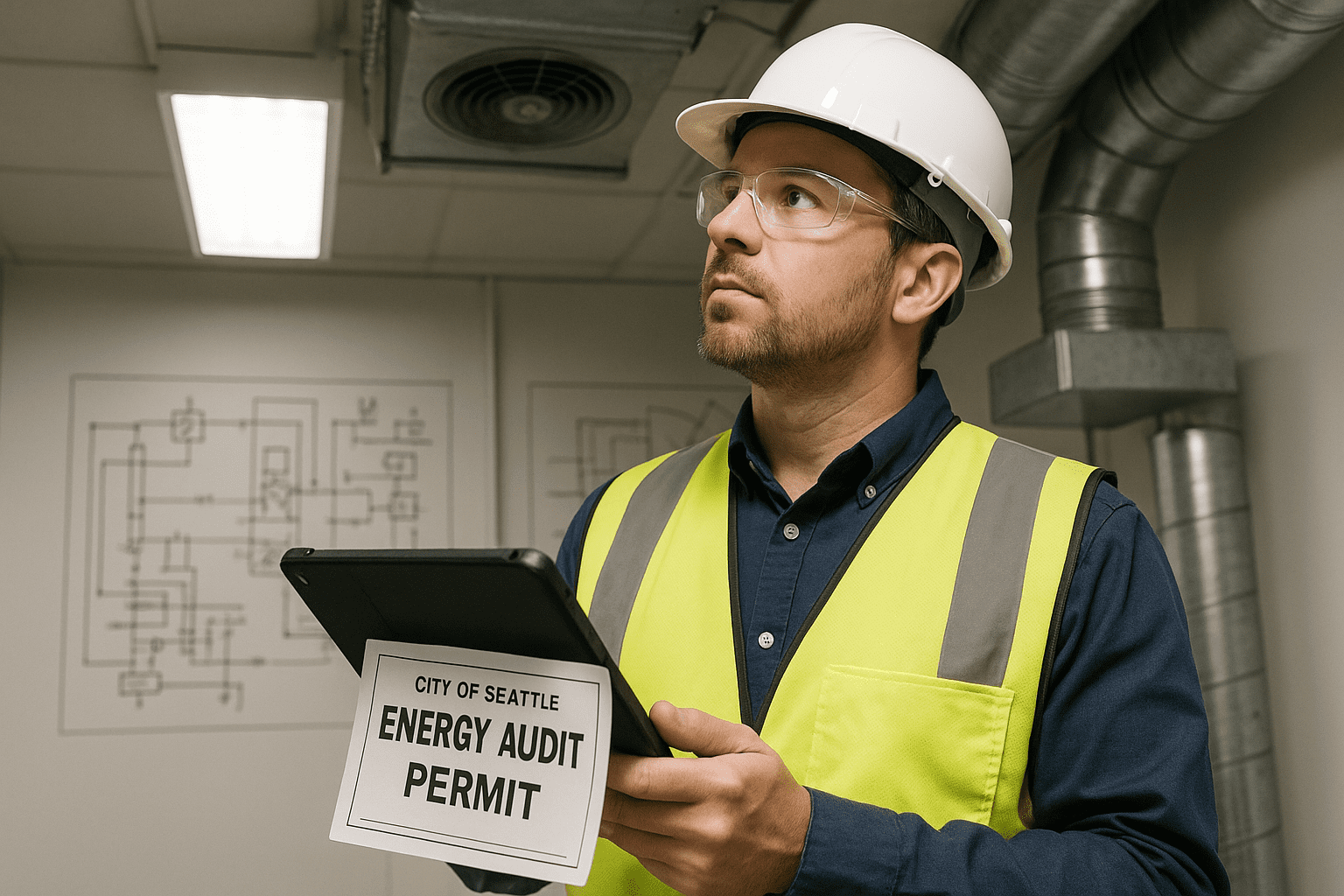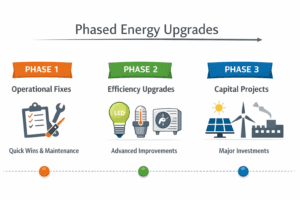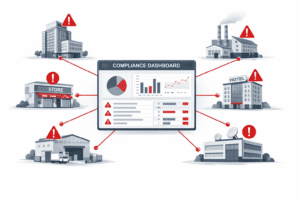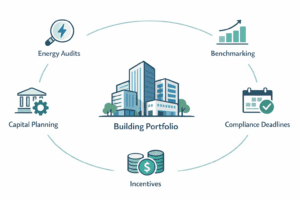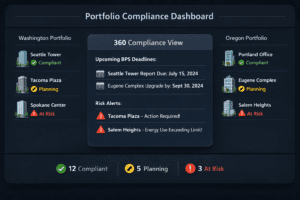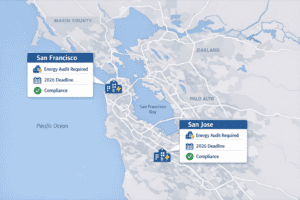Seattle’s 2025 Tiered Penalty System: Why Early Energy Audits Are Your Best Defense
Seattle’s new energy audit enforcement policy is about to change how commercial property owners approach compliance and the cost of falling behind. Starting in 2025, Seattle will implement a Tiered Penalty System that increases fines the longer a building remains out of compliance with local energy audit requirements.
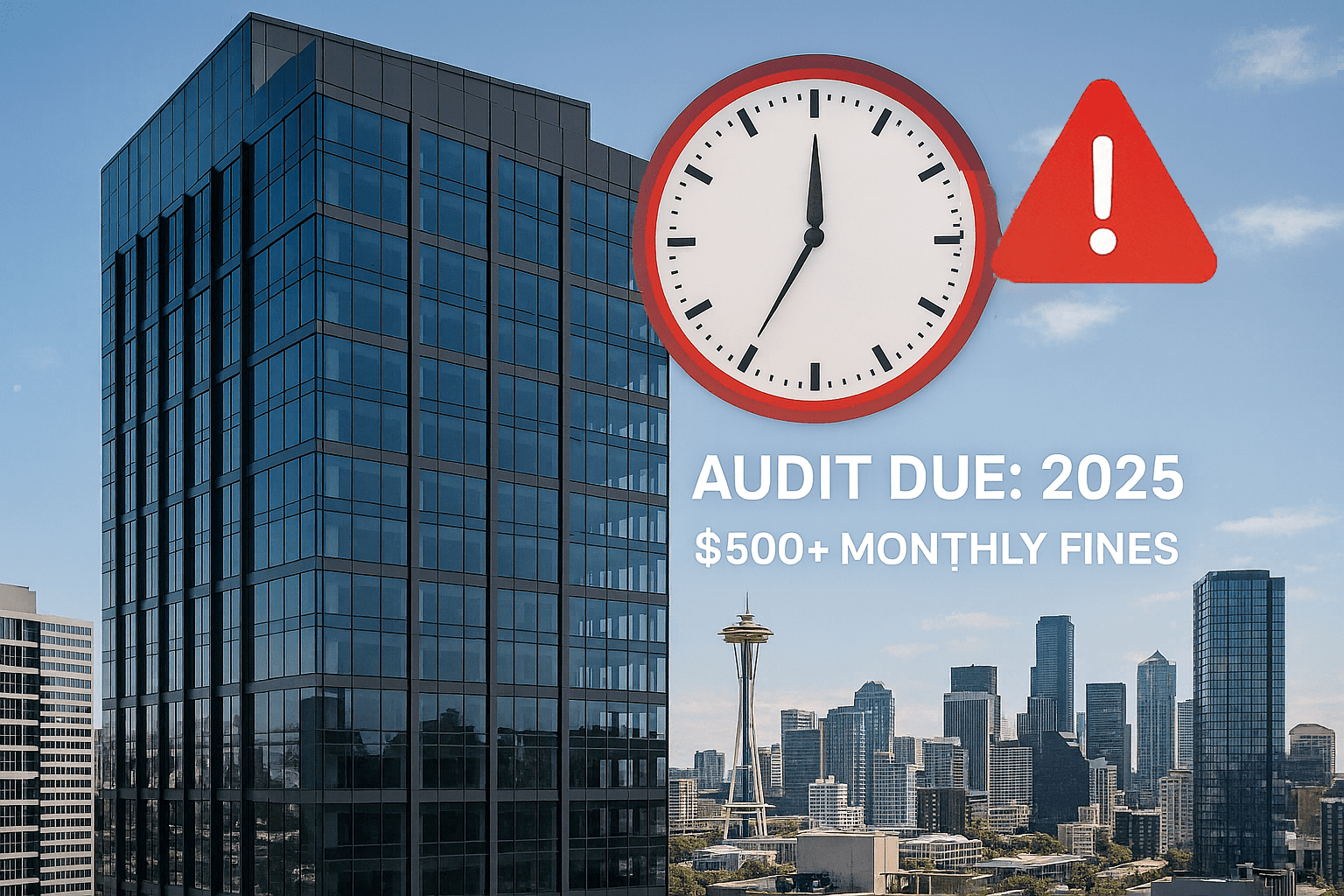
For property owners and managers, this means energy audits are no longer something to push off until the last minute. One missed deadline could trigger escalating fines that grow month after month. The key to avoiding thousands of dollars in penalties? Early action.
In this guide, you’ll learn how Seattle’s new tiered penalties work, why acting early matters more than ever, and how to build a compliance plan that protects your budget and your building’s long-term performance.
What Is Seattle’s Tiered Penalty System?
Seattle’s 2025 Tiered Penalty System is a major shift in how the city enforces its energy audit rules for commercial properties. Instead of issuing a one-time flat fine, the city will now increase penalties based on how long a property stays noncompliant.
For example, if a property owner misses the initial audit deadline, they might be hit with a $500 fine. If they remain out of compliance three months later, that penalty could grow to $1,000. By the six-month mark, it could exceed $2,000, and beyond that, fines may continue to accumulate monthly.
This escalating model is designed to incentivize early compliance and discourage property owners from delaying audits. With enforcement expected to ramp up quickly in 2025, owners who wait too long could find themselves facing thousands in avoidable fees.
Why Early Energy Audits Give You The Edge
Completing your building’s energy audit ahead of the deadline isn’t just about avoiding fines, it’s a strategy that delivers operational, financial, and reputational value.
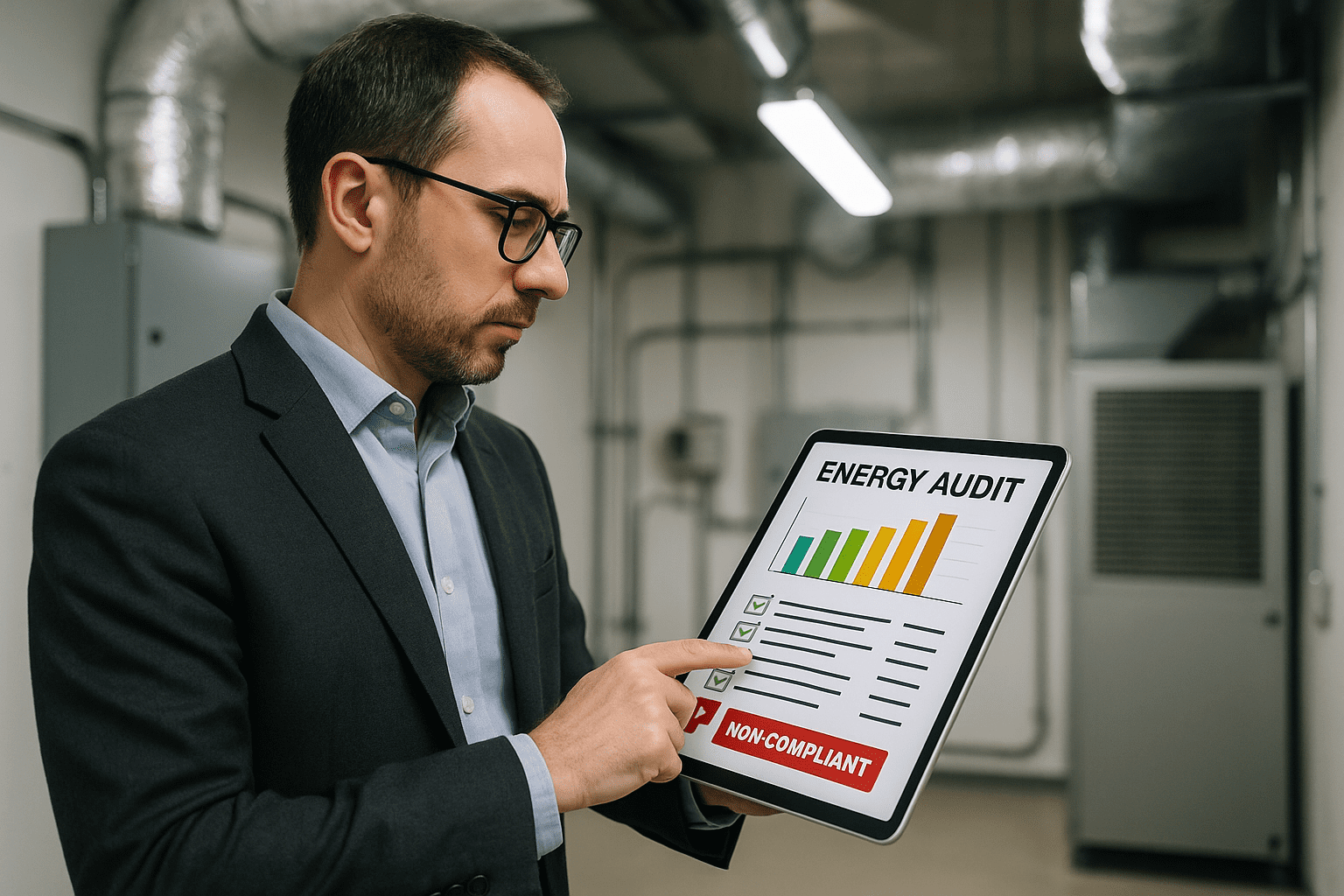
First, early audits give you breathing room. If your audit uncovers any issues—inefficient systems, outdated equipment, or usage patterns that need correcting—you’ll have ample time to make upgrades without rushing. Trying to fix problems last-minute under the pressure of looming fines often leads to higher costs, rushed decisions, and poor results.
Second, early compliance reduces stress on your internal team. Engineers, facility managers, and auditors are in high demand as deadlines approach. Scheduling in advance ensures availability and gives you time to address any documentation or system requirements before submission.
Finally, energy audits can uncover cost-saving opportunities. Buildings that operate efficiently tend to see lower utility bills, higher tenant satisfaction, and better market positioning. If you’re planning capital improvements or ESG upgrades, the audit can inform smarter investments, and may qualify your property for rebates or green certifications.
Seattle Energy Audit Compliance: Your Action Plan
To prepare for the 2025 Tiered Penalty System, follow this strategic timeline. This approach helps ensure your property avoids financial penalties and builds a track record of proactive compliance.
Energy Audit Compliance Checklist:
- Verify your building’s deadline: Different properties have different due dates based on size, occupancy, and usage. Know yours.
- Hire a qualified energy auditor: Make sure they’re experienced with Seattle’s specific regulations to prevent delays or rejected submissions.
- Schedule your audit 90+ days in advance: This gives you time to deal with any issues, holidays, or delays before the real deadline hits.
- Review preliminary findings immediately: Don’t sit on your draft audit. Involve your facilities team quickly to plan next steps.
- Submit final reports and confirm receipt: Always verify that both your auditor and the city have your completed audit on file.
- Keep digital records: Save emails, submissions, invoices, and audit files. If there’s a dispute or review, documentation is your best protection.
How Much Could Noncompliance Cost You?
Let’s break down the potential financial impact of missed audit deadlines under Seattle’s new tiered penalty structure.
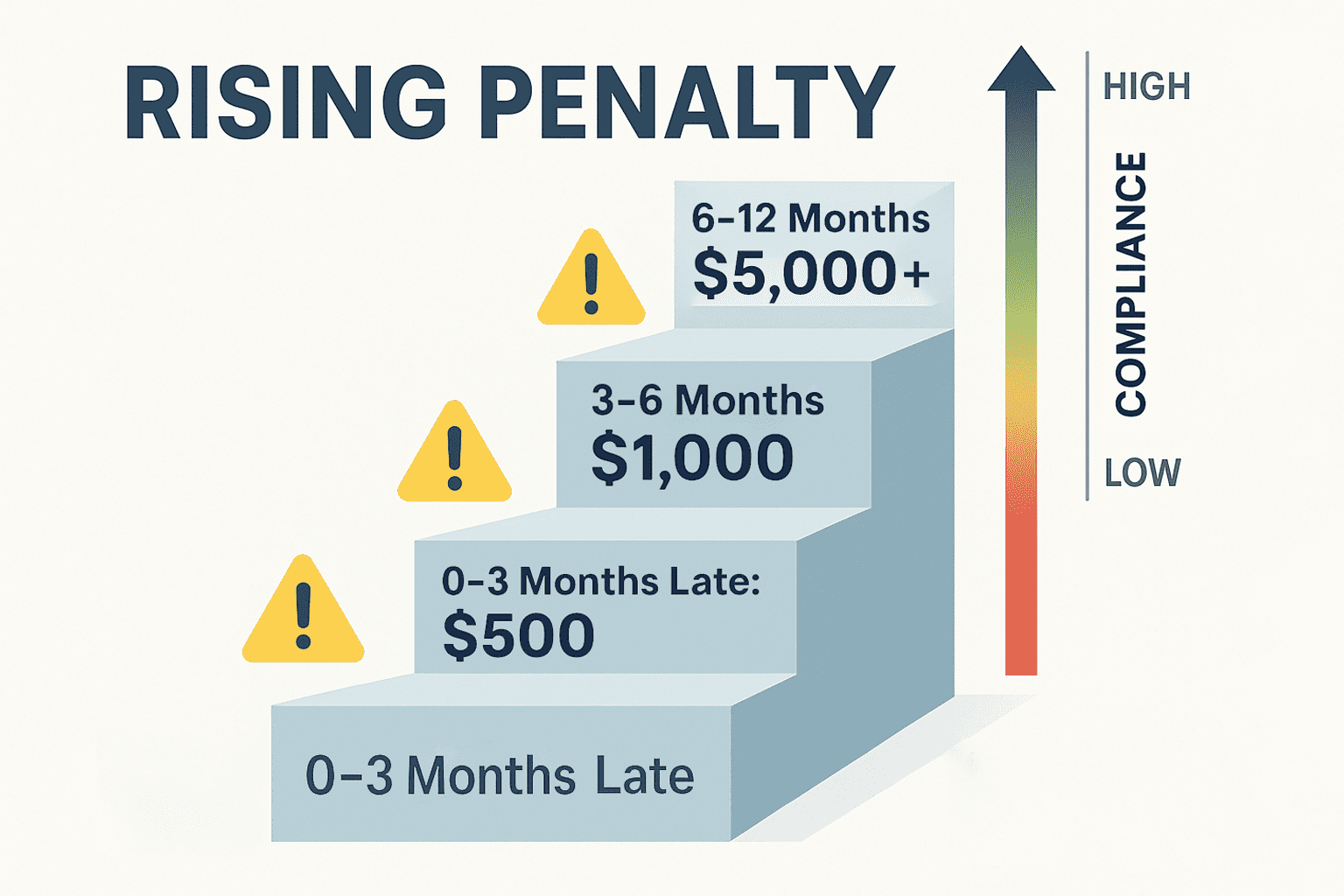
If your building is just three months late, you could face up to $1,000 in fines. By the six-month mark, that number could double, or more. Delaying your audit for 9–12 months could result in over $5,000 in cumulative fines, not including the administrative fees or additional enforcement actions that may apply.
In some cases, the cost of noncompliance may exceed the cost of the audit itself—making early action the smarter financial choice.
Frequently Asked Questions About Seattle’s 2025 Changes
Q: What if I’m only a week or two late? Will I still be fined?
Yes. The new system imposes penalties for any delay beyond your scheduled deadline. Even small delays start the compliance clock—and the longer you wait, the higher the fines.
Q: Will the city notify me about my deadline?
While the city may issue reminders, the responsibility lies with the property owner. Relying on city notices puts you at risk of missing your window, especially during busy seasons.
Q: Can I appeal a fine?
You can file an appeal, but successful reversals are rare and require strong documentation (e.g., proof of weather delays or verified scheduling conflicts). The best way to avoid fines is proactive planning, not reactive appeals.
Q: How often do I need to complete an audit?
Most Seattle properties must complete a comprehensive energy audit every five years, though additional reporting may be required based on building size and performance.
Don’t Wait Get Ahead Of The Deadline
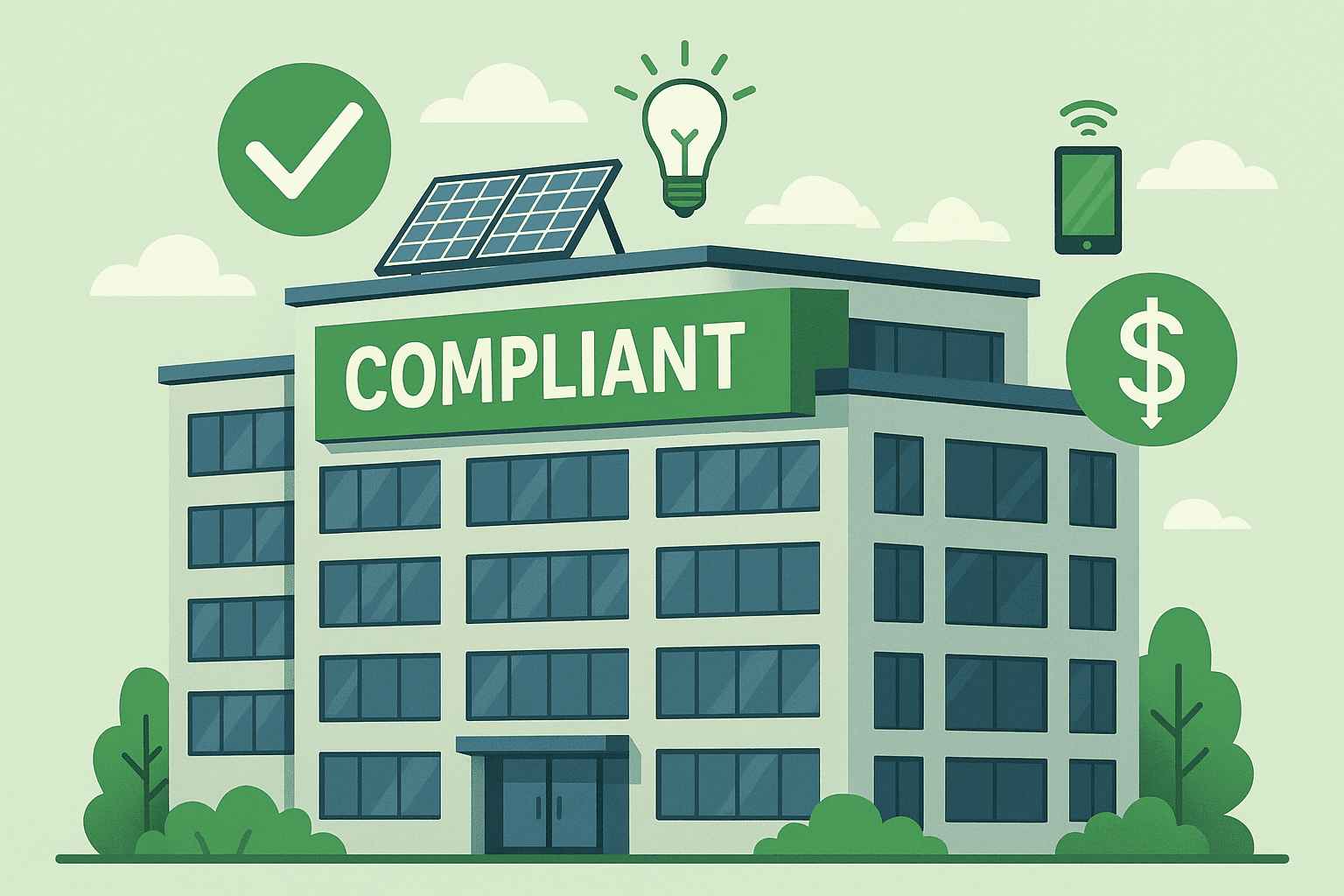
Seattle’s Tiered Penalty System is clear: the longer you delay your audit, the more you’ll pay. Property managers and building owners who take action now will be the ones who benefit—not just by avoiding fines, but by making smarter decisions about their building’s energy use and long-term strategy.
From securing contractor availability to identifying efficiency upgrades, early audits offer more than just compliance. They offer a chance to improve operations, reduce energy spend, and future-proof your property.
VertPro® is here to help. We offer:
- Instant pricing for ASHRAE-level energy audits
- Help selecting qualified Seattle-based auditors
- Submission support to ensure nothing falls through the cracks
- Compliance tracking for over 60+ local and state energy laws
Book Your Free Energy Audit Consultation
Ready to protect your building from costly fines and improve energy performance along the way?
👉 Visit VertPro.com to access audit pricing, explore compliance solutions, and learn how we make energy management simple.
Early audits save money, reduce risk, and unlock opportunity. Let’s get started.


